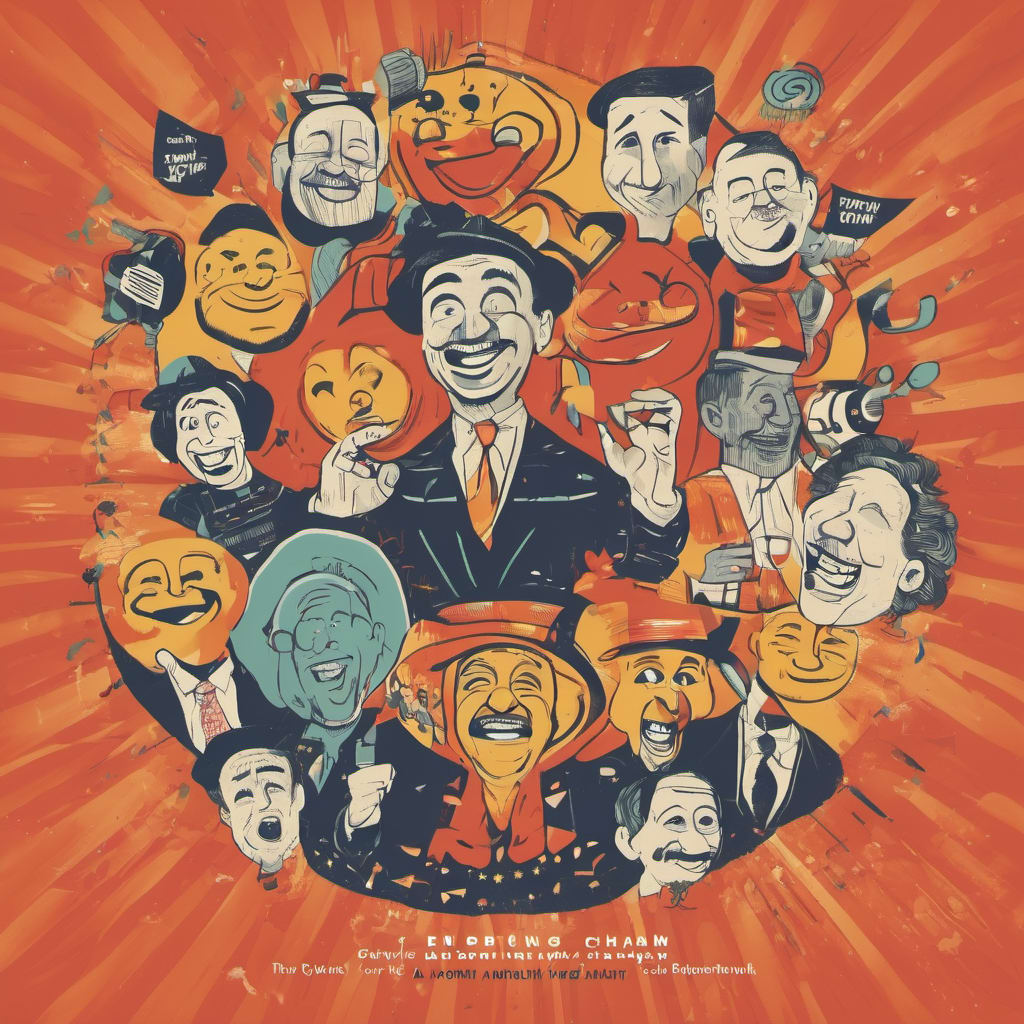The Enduring Charm of Comedy: A Journey Through Laughter and Reflection
...

In the grand tapestry of human culture, comedy stands out as a vibrant thread, weaving together stories, performances, and expressions that capture the essence of what it means to be human. From the slapstick antics of ancient theater to the sharp wit of modern stand-up, comedy has evolved through centuries, yet its core objective remains the same – to invoke laughter and provide a lens through which we can view, and often critique, society. This exploration delves into the rich history, varied forms, and profound impact of comedy, shedding light on its enduring charm and its pivotal role in human connection and reflection.
The Historical Roots of Comedy
Comedy's origins can be traced back to ancient civilizations, where it served as a means to entertain, as well as to comment on societal norms and politics. In ancient Greece, comedy was one of three principal dramatic forms in theater, alongside tragedy and satyr plays. Aristophanes, often referred to as the Father of Comedy, used humor to critique Athenian society and politics. As comedy evolved, it found expression in various cultures and forms, from the comedic plays of Shakespeare to the satirical writings of Mark Twain, each offering a mirror to the societal context of their times.
The Evolution of Comedy Forms
Over the centuries, comedy has morphed and adapted, giving rise to a plethora of forms. Vaudeville brought comedy to the stage with a mix of humor, music, and dance, while silent films allowed physical comedy to flourish, with legends like Charlie Chaplin and Buster Keaton at the helm. The advent of radio and television opened new avenues, with sitcoms, sketch shows, and stand-up specials becoming cultural staples. The internet era has further diversified comedy, with digital platforms enabling creators to share their humor with a global audience, from YouTube sketches to memes that encapsulate the humor and irony of everyday life.
The Role of Comedy in Society
At its heart, comedy is a social construct that relies on shared contexts and understandings. It serves as a powerful tool for social commentary and critique, offering insights into cultural norms, political climates, and human behavior. Satire, a subgenre of comedy, employs humor, irony, and exaggeration to criticize and expose the follies and vices of society. Through laughter, comedy creates a space for dialogue and reflection, challenging audiences to think critically about the world around them.
The Psychological and Social Benefits of Laughter
Laughter, the physical manifestation of humor, is universally recognized for its therapeutic effects. Psychologically, laughter triggers the release of endorphins, promoting feelings of happiness and relieving stress. It also fosters social bonding; shared laughter can strengthen relationships and enhance group dynamics. Comedy, by sparking laughter, not only entertains but also contributes to our well-being and social cohesion, highlighting its intrinsic value to human experience.
Comedy in the Digital Age
The digital age has transformed the landscape of comedy, democratizing content creation and consumption. Social media platforms and streaming services have given rise to a new generation of comedians who navigate the complexities of modern life with humor that resonates with a global audience. This era has also seen the rise of niche comedies that cater to diverse interests and identities, reflecting the multifaceted nature of human society. The accessibility and immediacy of digital media have ensured that comedy continues to evolve, remaining a vital and dynamic force in contemporary culture.
Conclusion
Comedy, in its myriad forms, remains a cornerstone of human culture, offering solace, reflection, and connection. Its ability to adapt and resonate across eras underscores its universal appeal and the fundamental role of humor in the human experience. Through laughter, comedy provides a common ground, transcending barriers and drawing us closer in our shared humanity. As we navigate the complexities of the modern world, the importance of comedy – as a source of joy, a tool for critique, and a means of connection – is more pronounced than ever. In the words of the legendary Charlie Chaplin, "A day without laughter is a day wasted." As we continue to write the story of human civilization, comedy ensures that this narrative is punctuated with laughter, lightening our spirits and enriching our lives.






Comments
There are no comments for this story
Be the first to respond and start the conversation.